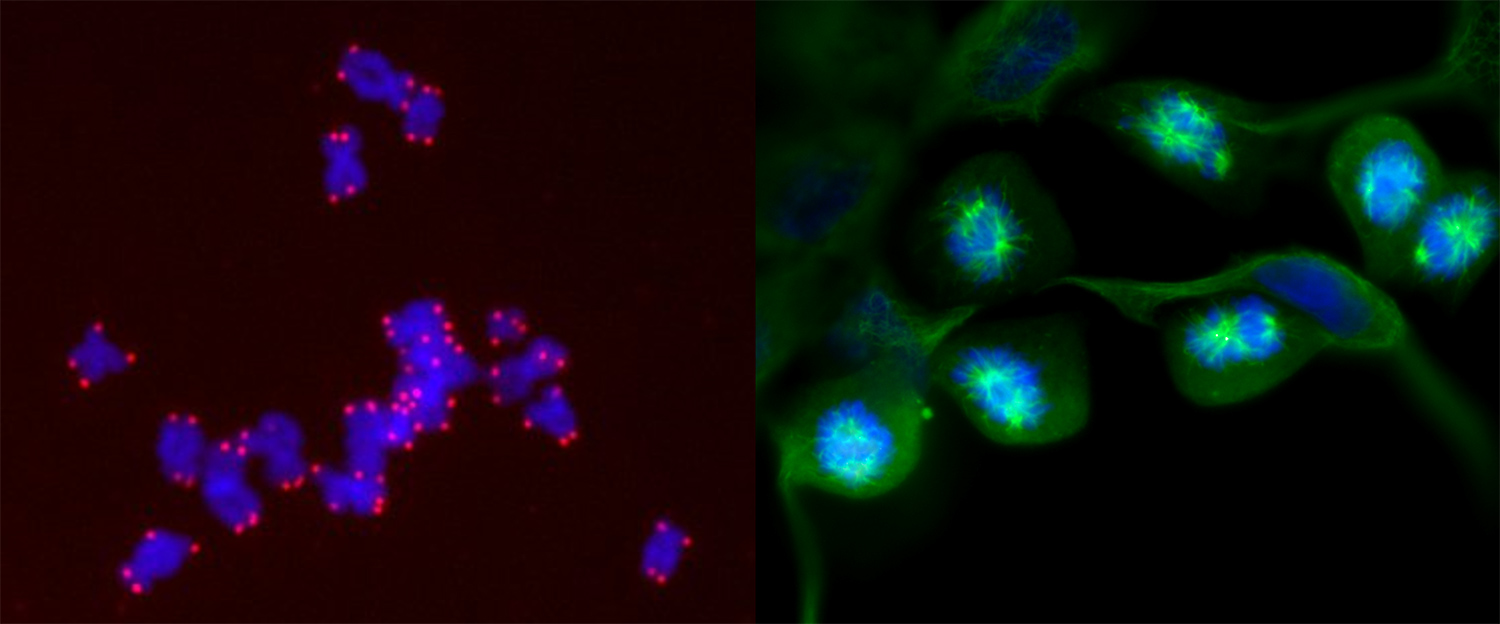
Master's in Integrative Biology and Pathophysiology

The Life Science Master's in Integrative Biology and Pathophysiology at the EPHE-PSL is a multidisciplinary master's program that allows you to understand the human being in all its complexity, drawing on a wide range of approaches, from molecules to behaviors.
This master's program will allow you to grasp the new challenges of health biology and physiology, with the goal of entering the world of academic research or industry. To achieve these goals, the master's program is divided into three tracks (Neurobiology and Cognition, Normal Cells, Cancer and Therapies, Infectiology and Microbiology) and gives you access to a wide range of teaching units allowing you to specialize in one of the life sciences fields.
The master's program is divided into three tracks:
- Neurobiology and Cognition
- Normal Cells, Cancer and Therapies
- Infectiology and Microbiology
Our strengths
- A personalized curriculum: after a first semester with a core curriculum, you refine your training by choosing Teaching Units from those in the selected track. The option to choose up to three teaching units outside the track over the two years offers you a customized program, tailored to your career goals.
- Individual support: a Teaching Tutor chosen among the EPHE-PSL's faculty members will support you throughout your studies.
- Starting in the first year of your master’s degree, a six-month internship each year, provides solid research training through immersion in a scientific project. The EPHE-PSL offers internship opportunities in leading laboratories or innovative companies in France (in Paris and the surrounding region) or abroad. The internship takes place throughout the year and is available through a professionalization contract.
- Teaching is provided in close proximity to the EPHE-PSL laboratories, in Paris and the surrounding region, by the EPHE-PSL faculty members who are experts in their fields, as well as external specialists from the public and private sectors.
- The opportunity to apply for an excellence or international mobility scholarship for the Life Sciences graduate program.
- Small class sizes (10 to 20 students per program) allow for interactive teaching with a strong emphasis on pedagogical innovation.
Our three tracks
- Neurobiology and Cognition track explores the functioning of the nervous system throughout life, from development to aging, using integrative approaches. It explores a range of disciplines and methods, from the genetic, molecular, and cellular levels to cognitive science. The pathophysiological foundations of neuropsychiatric and neuroevolutionary diseases will be covered, as well as the most recent therapeutic strategies and clinical trials.
- Normal Cells, Cancer, and Therapies track allows you to acquire advanced skills in cell biology, genetics, and immunology to understand normal cell function, the biological processes underlying cancer pathologies, and familiarize yourself with new therapeutic approaches. Emphasis is placed on fundamental research as well as translational research, thus bringing an integrated approach, from cell to human.
- Infectiology and Microbiology track allows you to acquire cutting-edge skills in microbiology (virology, bacteriology, parasitology, and mycology), immunology, and molecular biology to understand the dynamics of host-pathogen interactions from the cell to the population. You will also become familiar with the concepts of One Health / Eco Health for an integrated approach to health. Emphasis is placed on fundamental research and new sustainable strategies to improve health.
Training Locations
Most courses take place close to EPHE laboratories. Classes are therefore held in Paris as well as in several regional cities: Montpellier, Lyon, Bordeaux, Caen, and Dijon.

Course Schedule
The courses in a course unit are grouped together over a week. Thus, the majority of the course units, each lasting 30 hours, take place over five consecutive days. Some course units are organized remotely, in the form of lectures or supervised individual work.
Registration Procedure
The Master's degree is available through formal and continuing education. It is also available through a professionalization contract.
Admission Requirements
Student applications are submitted to the Master's Program Council (an entirely online procedure).
Expected upon entry to the M1 program
- Solid training in biology (Physiology, Cell Biology, Biochemistry, Molecular Biology, etc.).
- Laboratory experience preferred (internships in public or private institutions related to the life sciences).
- A penchant for interdisciplinary approaches.
- Foreign applicants: You must demonstrate proficiency in French (level B2); otherwise, a test will be required at the start of the academic year, and French as a Foreign Language (FLE) will be mandatory.
Admission to the master’s 2 program
You must have completed an M1 program in the field of Life Sciences. Otherwise, the Validation of Prior Learning (VA) form, available in the application package, must be completed. A favorable opinion from the selection committee is required for validation of your previous education.
Application Package
The application package consists of the following documents:
- A cover letter, specifying your interest in our program, the intended path, and your career plan.
- A detailed Curriculum Vitae.
- A copy of complete transcripts from your bachelor’s degree (entering M1) or master’s degree (entering M2; French translation for foreign degrees).
- A letter of recommendation from an academic advisor and/or professional advisor will be appreciated.
Internship
You must demonstrate that you are actively seeking a six-month internship, as it must begin in November for M1 and M2 students. All internship opportunities must be approved by the program directors. Internship proposals will be made available to students who have validated their administrative registration.
Internships from previous cohorts.
Professionalization Contract
The BioP Master's program is accessible through a professionalization contract.
Contacts:
Continuing Education Department,for information on funding for your training.
Professionalization Contracts Officer.
Validation of Higher Education
The Master's in Integrative Biology and Pathophysiology is eligible for the Validation of Higher Education program - Regulatory references: Articles R 613-32 to R 613-37 of the French Education Code. Validation of Higher Education allows students to obtain (in whole or in part) the master’s degree in Life Science, through recognition of previous studies and an oral presentation before a jury of professional and academic skills.
The Master's in Integrative Biology and Pathophysiology program is structured around a core curriculum offering training in transversal skills (English, scientific communication, statistics, CV writing, funding application writing, etc.), combined with a tailored specialization based on the chosen track and the selected teaching units. These are divided into track-specific units (specialization units) and introductory units, common to all three tracks. You also have the option of combining courses with other master’s programs through the selection of external teaching units (subject to the agreement of the relevant teaching teams).
The two six-month internships in the M1 and M2 programs provide hands-on training with a strong focus on cutting-edge research thanks to the numerous laboratories (Inserm, CNRS, INRAE) and partner companies of our master’s program, throughout France and abroad ((internships from previous year groups).).
Track Organization

Details of the available course units can be found here..
You will also have the opportunity to attend a PSL Week during your Master's program (it is mandatory to attend one PSL Week either in the first or second year).
Six months after obtaining their Master's degree, 75% of graduates have entered the job market, including two out of three with permanent contracts.
Various career paths are available to Master's graduates:
- Research engineer in public organizations.
- Research and development positions (project manager, R&D engineer) in the private sector, particularly in the pharmaceutical industry and innovative biotechnologies.
- Sales engineer.
- PhD (approximately one-third of graduates). Upon completion of their thesis, our graduates can apply to public organizations (researcher or professor positions) or industry (project managers).
- Continuing studies for a dual specialization: clinical research associate, biostatistics, bioinformatics, marketing, management, or medical devices.
The École Pratique des Hautes Études – PSL offers the opportunity to undertake a study or internship mobility. Each year, a call for applications is launched for 1 to 2 international mobility scholarships under the Life Sciences Graduate Program (PG).
The International Relations Department assists students in defining and implementing their projects, identifying the most appropriate financial instruments and schemes.
Holder of the “Welcome to France” label and the Erasmus+ 2021-2027 charter, the EPHE-PSL has also been welcoming a large and growing number of international students for many years.
Go to International relations
Download: Directory of financial mechanisms and instruments for international projects
Who should you contact? International Relations Department
Program Directors
Master's in LS: Isabelle LAGROYE
Master 1: Marie-Christine LEBART
Normal Cells, Cancer and Therapies (M2): Françoise TROUSSE
Normal Cells, Cancer and Therapies (M2): Véronique FRACHET
Infectious Diseases and Microbiology (M2): Jessie COLIN and Vincent RAQUIN